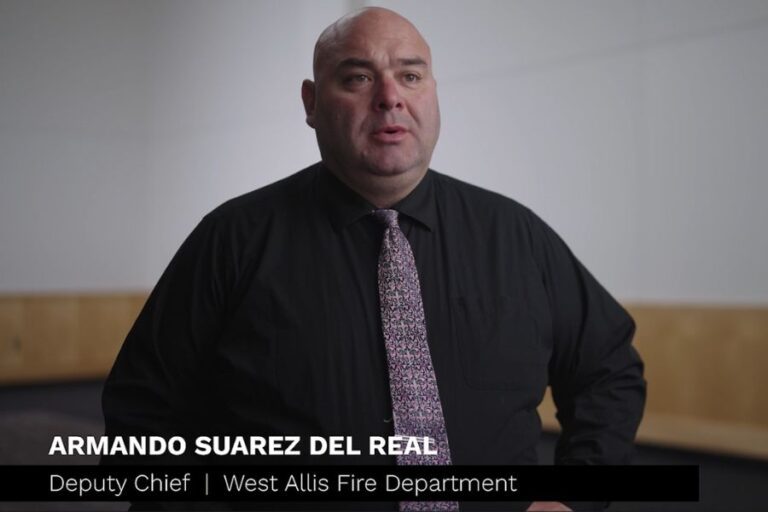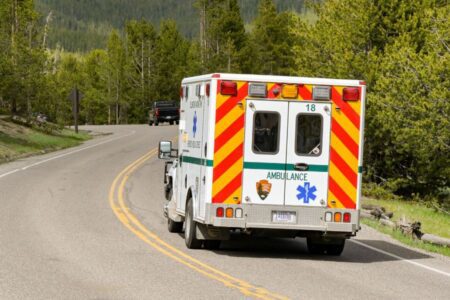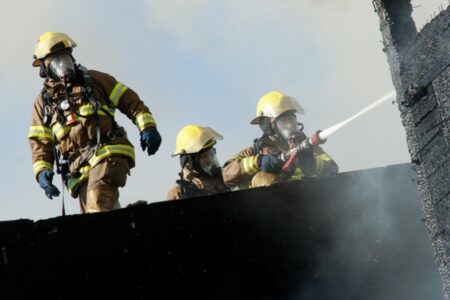When call volumes rise and resources are stretched thin, proactive solutions become more than a good idea—they’re a necessity. For the West Allis Fire Department in Wisconsin, that meant developing a Mobile Integrated Healthcare (MIH) program aimed at addressing issues before they become emergencies.
Deputy Chief Armando Suarez Del Real oversees operations for the bureaus of fire prevention and MIH, reporting to the Assistant Chief of the Community Risk Reduction Division. “We went from a very reactive fire department… to proactively searching out issues that are going to potentially be an issue for our citizens and our community, and then addressing them before they become an emergency,” he said.
You can scroll down to watch Armando’s full Connect25 interview, where he shares how West Allis’ MIH program has grown.
From High Utilizers to Five Areas of Focus
The West Allis MIH program began by targeting high utilizers, patients calling 911 more than three times in 30 days. By connecting them to available resources, the department worked to reduce repeated calls.
Today, it has expanded into five primary areas of concern, each with its own standalone programs. These include initiatives ranging from OB and early childhood support to socioeconomic needs navigation, as well as efforts addressing health literacy and other social determinants of health.
The team also runs successful fall risk and substance use disorder programs, and participates in the Coverdell Stroke Program, seeing stroke patients from multiple hospitals.
Funding for all these initiatives comes from:
- Two fee-for-service hospital contracts
- Grant programs supporting specific initiatives
Flexible Documentation Tools for Better Patient Outcomes
One advantage Suarez Del Real points to is the ability to configure ImageTrend tools for each partner’s needs.
“We have control over the reports that we’re running, like the ePCR templates that we make… We’re able to change course and adjust as needed and cater to those that we serve by making sure that the reports and the numbers that are coming out are beneficial to them.”
This easy flexibility allows West Allis Fire Department to:
- Match partner formats by adding specific questions or data points to each template
- Mine any data points needed to track outcomes and guide program direction
- Adjust quickly when program or partner needs change
In one case, reviewing reports and hospital questionnaires revealed that a Spanish-speaking hospice patient was receiving care instructions only in English and was taking medications incorrectly. The team translated the materials and helped the patient follow the correct regimen.
That patient is still alive today—a result Suarez Del Real attributes to their ability to quickly identify key details in the data, such as language preference, and act on them before the situation became critical.
Shifting Culture and Shaping the Future
The West Allis MIH program has done more than reduce the rate of call volume growth; it has changed how the department approaches its mission.
“It’s given ownership and pride to our members that they’re not only doing a good job in reactionary times, but proactively they’re making a huge difference in the lives of the citizens that they serve… We’re recognized by a lot of different agencies in our area and nationally, and that’s something to hang your hat on, that you’re doing something right,” Suarez Del Real said.
For agencies considering a community paramedicine or MIH program, Suarez Del Real’s advice includes:
- Researching other models to see what works
- Networking with peers to share ideas and challenges
- Assessing and adjusting programs as they develop
- Leveraging frameworks like the National Fire Academy’s program development process
Looking ahead, the West Allis Fire Department plans to consolidate more operations into ImageTrend, including:
- Fire inspection
- Fire prevention efforts
- CAD integration
“I can’t stress [enough] the benefit of having the ability to control every report… and putting everything on one platform, that would be wildly beneficial,” Suarez Del Real added.
Watch the Full Interview
Hear Deputy Chief Armando Suarez Del Real share more about West Allis Fire Department’s Mobile Integrated Healthcare program and the role of data-driven decision-making in its growth.




